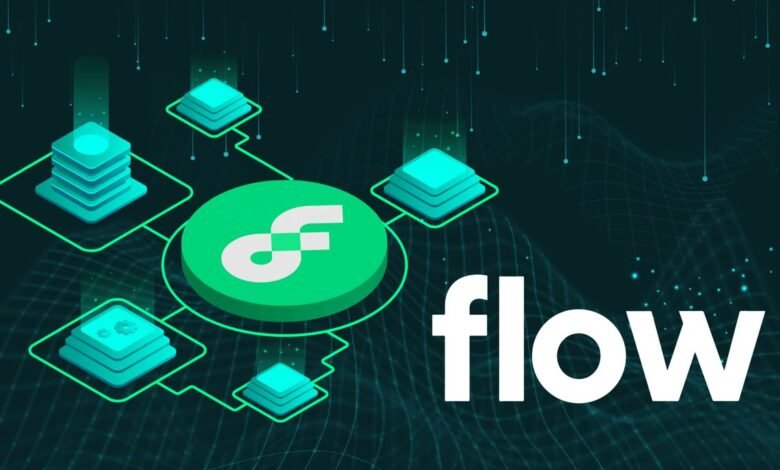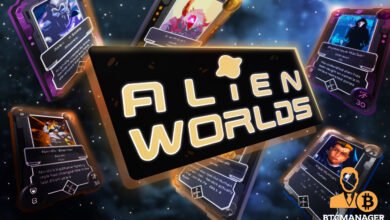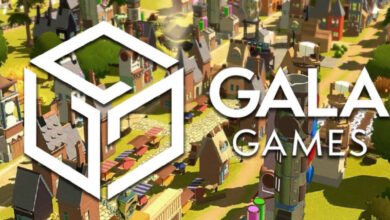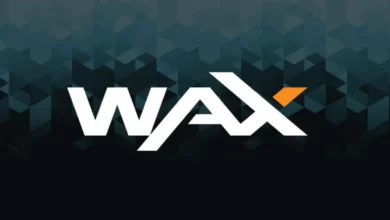FLOW and its NFT-friendly Blockchain

The rise of non-fungible tokens (NFTs) has taken the world by storm, and blockchain technology has played a significant role in this phenomenon. With the increasing popularity of NFTs, many blockchain platforms are striving to make their networks more NFT-friendly, and one such blockchain platform is Flow.
What is Flow blockchain?
Flow blockchain is a decentralized blockchain network created specifically for the next generation of digital entertainment. The Flow architecture allows for high-speed transactions, reduced fees, and enables developers to build decentralized applications (DApps) with ease.
Flow blockchain has been designed to support both fungible and non-fungible tokens. Fungible tokens are the type of tokens that can be exchanged for one another, like traditional currency. Non-fungible tokens, on the other hand, are unique tokens that represent ownership of a particular asset, like artwork, music, or video games.
How does Flow blockchain support NFTs?
Flow blockchain has been designed to support NFTs, and the platform has several unique features that make it a preferred blockchain platform for NFTs. One of the primary advantages of Flow blockchain is its ability to handle high throughput transactions, which is essential for NFTs that require high-speed transactions.
NFTs on Flow blockchain are created using smart contracts, which are self-executing contracts with the terms of the agreement between the buyer and the seller being directly written into code. This makes the creation of NFTs on Flow blockchain more secure and transparent.
How to create and trade NFTs on Flow blockchain?
Creating and trading NFTs on Flow blockchain is a straightforward process. Anyone can create an NFT on the Flow blockchain by writing a smart contract that defines the token’s properties. The contract can then be deployed on the Flow network, and the NFT will be created.
Once the NFT is created, it can be bought, sold, and traded just like any other asset. Trading NFTs on Flow blockchain is also straightforward. Anyone can create a marketplace for NFTs, and buyers and sellers can interact directly with each other without the need for intermediaries.
Popular NFT projects on Flow blockchain
Flow blockchain has become a popular platform for NFTs, and several notable NFT projects have been built on the platform. NBA Top Shot is one of the most successful NFT projects on Flow blockchain, allowing fans to own unique digital collectibles of their favorite basketball players.
CryptoKitties is another popular NFT project on Flow blockchain, allowing users to buy, sell, and breed digital cats. Other notable NFT projects on Flow blockchain include MotoGP, Dr. Seuss, and UFC.
Future of Flow Blockchain and NFTs
Flow blockchain has immense potential for mass adoption, given its high throughput and low fees. The platform is well-suited for digital entertainment, including gaming, music, and sports. As the popularity of NFTs continues to grow, we can expect more NFT projects to be built on the Flow blockchain, attracting a wider audience to the platform.
The integration of Flow blockchain with other blockchain networks is also a possibility, which could lead to cross-chain NFTs, further expanding the use cases of the technology.
The Benefits of Flow Blockchain for NFTs
Flow blockchain offers several key benefits that make it an ideal platform for NFTs. One of the most significant advantages is its high throughput, which allows for fast transaction processing and a seamless user experience. Additionally, Flow blockchain’s low fees make it an affordable option for developers and users alike, helping to encourage widespread adoption of NFTs.
Another benefit of Flow blockchain is its robust support for smart contracts, which are essential for creating and managing NFTs. The platform’s programming language, Cadence, is designed specifically for building complex applications, making it easier for developers to create sophisticated NFT projects.
Flow Blockchain Use Cases
Flow blockchain has a wide range of use cases, including gaming, sports, music, and art. For example, NBA Top Shot, one of the most successful NFT projects to date, is built on Flow blockchain. The platform’s high throughput and low fees make it an ideal choice for creating and trading NFTs in real-time, making it perfect for sports and gaming applications.
In the music industry, Flow blockchain can be used to create unique digital assets that represent ownership of songs, albums, or other creative works. This can help musicians monetize their work and build closer connections with their fans.
Flow Blockchain and Cross-Chain Integration
Flow blockchain’s open architecture makes it easy to integrate with other blockchain networks, which could lead to new opportunities for NFTs. Cross-chain NFTs, which can be traded across multiple blockchains, could help to increase liquidity and create new markets for digital assets.
One potential use case for cross-chain NFTs is in the gaming industry, where players can earn digital assets in one game and trade them for assets in another game. This could help to create a more interconnected gaming ecosystem and provide new opportunities for gamers and developers alike.
The Future of Flow Blockchain and NFTs
The future of Flow blockchain and NFTs is promising, with many exciting developments on the horizon. As the popularity of NFTs continues to grow, we can expect more NFT projects to be built on Flow blockchain, further expanding its use cases and attracting new users to the platform.
Cross-chain integration also holds great potential for Flow blockchain and NFTs, providing new opportunities for developers and investors alike. With its high throughput, low fees, and excellent support for smart contracts, Flow blockchain is well positioned to become a leading platform for digital entertainment and NFTs in the years ahead.



